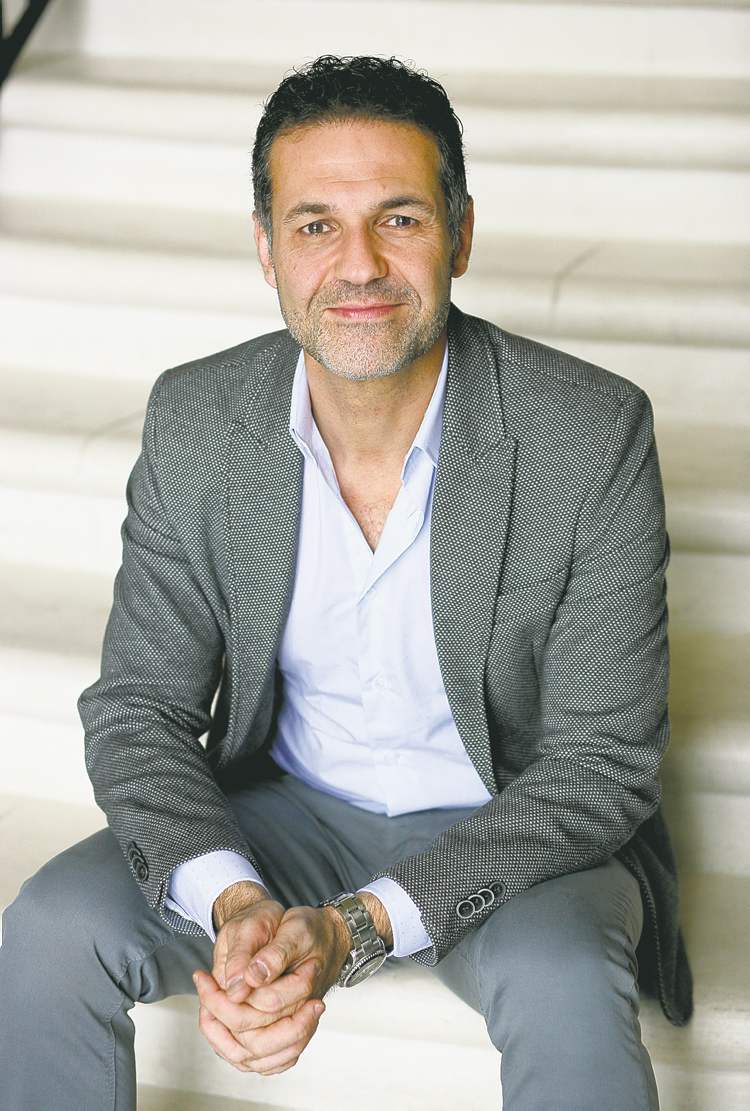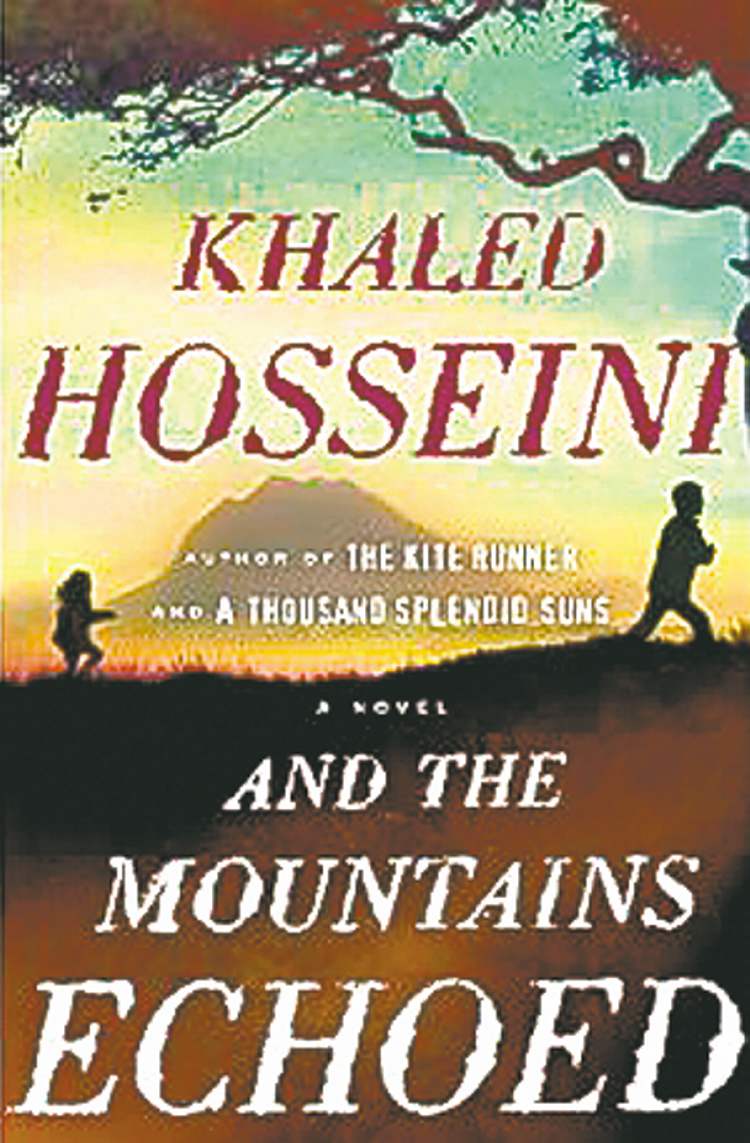Fresh take on Hosseini’s trademark humanity shines in tale of betrayal
Advertisement
Read this article for free:
or
Already have an account? Log in here »
To continue reading, please subscribe:
Monthly Digital Subscription
$0 for the first 4 weeks*
- Enjoy unlimited reading on winnipegfreepress.com
- Read the E-Edition, our digital replica newspaper
- Access News Break, our award-winning app
- Play interactive puzzles
*No charge for 4 weeks then price increases to the regular rate of $19.95 plus GST every four weeks. Offer available to new and qualified returning subscribers only. Cancel any time.
Monthly Digital Subscription
$4.99/week*
- Enjoy unlimited reading on winnipegfreepress.com
- Read the E-Edition, our digital replica newspaper
- Access News Break, our award-winning app
- Play interactive puzzles
*Billed as $19.95 plus GST every four weeks. Cancel any time.
To continue reading, please subscribe:
Add Free Press access to your Brandon Sun subscription for only an additional
$1 for the first 4 weeks*
*Your next subscription payment will increase by $1.00 and you will be charged $16.99 plus GST for four weeks. After four weeks, your payment will increase to $23.99 plus GST every four weeks.
Read unlimited articles for free today:
or
Already have an account? Log in here »
Hey there, time traveller!
This article was published 25/05/2013 (4613 days ago), so information in it may no longer be current.
IT is hard to believe it has been 10 years since Khaled Hosseini’s The Kite Runner took the literary world by storm.
That groundbreaking novel, followed by A Thousand Splendid Suns in 2007, quenched the thirst of Western readers desperate to better understand life within the borders of Afghanistan, particularly after 9/11.
Both of Hosseini’s compulsively readable books became instant classics. The Afghan-born, California-based doctor, who has lived in the U.S. for his entire adult life, bridges cultures with remarkable ease.

His novels have a kind of fable-like power. They also contain some unforgettable images, such as Amir, the young boy in The Kite Runner, who watches his friend’s rape and says nothing, only to be consumed by a lifetime of guilt. Or Miriam, the scorned first wife in Splendid Suns, who is forced to eat crushed rocks in her food by her evil husband.
His most ambitious novel to date, And the Mountains Echoed, proves that his massively popular first two efforts were no literary flukes. It offers a fresh take on his trademark tender humanity.
This is an epic story that crosses several generations and continents. Most of the story takes place in Paris, the Greek island of Tinos and California, while Afghanistan remains at its heart.
The novel begins in the 1950s of pre-war Afghanistan. Saboor, a father of two, tells his children a folk tale about a father whose love for this son is so strong, he must allow somebody else raise him in the hope of a better life.
The next day Saboor takes his impossible-to-separate daughter and son on a journey to Kabul that will forever alter their lives, and sets the story of the next 60 years in motion.
From here, each of the chapters feels like a short story. The characters all end up relating to the central pair, but that connection isn’t always immediately obvious.
There’s the story of their uncle’s life in Kabul and his lifelong devotion to his boss. There are two exiled cousins who return to their homeland to see firsthand the devastation of the past 30 years. There’s the glamorous stepmother turned poet, whose own life is a treasure trove of secrets and deception.
The tale that drives the book’s narrative, of Pari, Abdullah and their uncle Nabi, includes an equal dose of betrayal and redemption. Pari pays a large price for a loss that she endures over many decades.
While all of the stories are wonderfully told and complete in themselves, some of them feel less necessary than others. However, in the final chapter, everything comes together in an emotional and satisfying conclusion.
One of the main themes is how families betray and use each other. Hosseini details the love, sacrifice, pain and disappointment that families inflict upon each other.

One of the most affecting chapters tells the tale of a young Afghan boy who “lived in a mansion, but in a shrunken world.” He meets a boy whose property his father has taken over and, in befriending him, comes face to face with the fact that his prosperity has been achieved at someone else’s expense.
The surface doesn’t tell the whole story in two of the chapters that feature young girls who have been horribly disfigured. Of one of them, whose face has been mauled by a dog, her friend observes, “I learned that the world didn’t see the inside of you, that it didn’t care a whit about the hopes and dreams, and sorrows, that lay masked by skin and bone.” This also acts as the author’s lament for the fate of his homeland.
Many of Hosseini’s observations are sardonic, as when he writes about an Afghan man who moves to the U.S. and changes his name from Timur to Tim in order to double his income, or his depiction of a Kabul bodybuilding gym with a picture of Schwarzenegger on the window.
Hosseini’s writing style is direct and visceral. He has the ability to practically wound readers as they read his words. He’s a master of the literary twist, never allowing his reader to get too comfortable.
Hosseini doesn’t write like anyone else. But if you combined the sprawl of a Charles Dickens novel with the delightful characterization of Armistead Maupin’s work, and set it all in Afghanistan, you might get And the Mountains Echoed.
This new novel isn’t as harrowing or haunting as Hosseini’s earlier work. Still, the idea that betrayal creates an echo that can last for many generations is powerful. And in Hosseini’s deft hands, it also makes for a very emotional ride.
Greg Klassen is a Winnipeg arts marketer, publicist and writer.
History
Updated on Monday, May 27, 2013 11:22 AM CDT: corrects Afghani to Afghan


